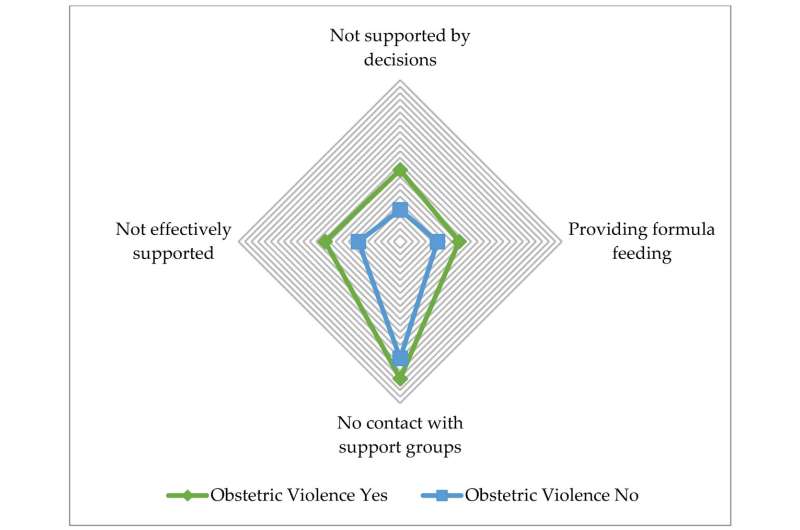Study says at least one in four women suffered obstetric violence in Spain during the pandemic

One out of every four women suffered obstetric violence in Spain between March 2020 and April 2021, according to the conclusions of a study on breastfeeding carried out on more than six thousand Spanish patients by the Nursing Department of the Universitat Jaume I of Castelló in collaboration with the Obstetrics Department of the Hospital do Salnés in Vilagarcía de Arousa, Pontevedra, although the research team believe the figure could be higher.
There is currently a lack of international consensus on how to define and measure obstetric violence. Nevertheless, the study entitled “Experiences with obstetric violence among healthcare professionals and students in Spain,” carried out by this same team from the UJI in collaboration with the University of Almería and the Xàtiva-Ontinyent Health Department (Valencia), and published in the journal Women and Birth, has concluded that, in the Spanish context, “obstetric violence” would be the most accurate term to describe a type of violence which constitutes a breach of human rights and a serious public health problem, as well as having consequences for women’s physical, mental and sexual health.
The health professionals and nursing students who participated in the study through in-depth interviews (9 midwives, 3 pediatricians, 1 nurse, 1 gynecologist and 6 nursing students, 80% of whom were female and between 22 and 70 years of age) agreed that the term obstetric violence is the most accurate. Some of the respondents, however, acknowledged that they felt uncomfortable with it, but also commented that “the more I learn, the more I realize that I was a witness to violence as I pushed for interventions that were not appropriate.”
According to participants, obstetric violence is perceived as a facet of systematic gender-based abuse, derived from the patriarchal system, which includes routine, unnecessary or non-consensual interventions, medicalization of the mother or child, verbal abuse, humiliation or lack of adequate resources and facilities. They have therefore proposed a series of strategies to help eradicate this problem, including the training of professionals, on the one hand, and the necessary political involvement, on the other.
In the opinion of the research team, the definition of this term “contributes to the ongoing awareness of violence against women, which can help to regulate it through national policies and legislation.” Its purpose has been to develop a theoretical model based on the experiences of health professionals and students with the aim of improving the understanding of obstetric violence and facilitating its measurement. They have also stressed the importance of prevention, which can be achieved through the training and education of health professionals and future professionals.
Breastfeeding
In another vein, according to the study “Breastfeeding and Obstetric Violence during the SARS-CoV-2 Pandemic in Spain: Maternal Perceptions,” published in the Journal of Environmental Research and Public Health, one out of four participants stated that they were offered formula milk during their stay in hospital and one in three stated that they did not feel effectively supported in resolving their doubts or difficulties while in hospital.
Moreover, respondents commented that in cases where they experienced obstetric violence or tested positive for COVID, they received less support for breastfeeding and were even told to give it up altogether so that they could be vaccinated. However, there is ample scientific evidence showing the female body’s robust immune response to COVID-19 by the passage of SARS CoV-2 antibodies through breast milk following vaccination.
The sample consisted of women who gave birth in Spain between March 2020 and April 2021, with an average age of 34 years, 73% of whom were employed, 78.2% had a university education and almost all were Caucasian. A total of 3.3% were diagnosed with SARS-CoV-2 during pregnancy and 1% were diagnosed with it during delivery.
More information:
Desirée Mena-Tudela et al, Breastfeeding and Obstetric Violence during the SARS-CoV-2 Pandemic in Spain: Maternal Perceptions, International Journal of Environmental Research and Public Health (2022). DOI: 10.3390/ijerph192315737
Desirée Mena-Tudela et al, Experiences with obstetric violence among healthcare professionals and students in Spain: A constructivist grounded theory study, Women and Birth (2022). DOI: 10.1016/j.wombi.2022.07.169
Journal information:
International Journal of Environmental Research and Public Health
Source: Read Full Article
